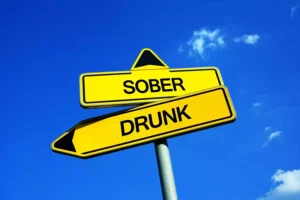
Also, withdrawal symptoms such as headaches, nausea, and vomiting can add to the mental fog. In fact, many people with alcohol use disorder (AUD) who go through the detoxification process experience prolonged brain fog. This is largely because our body is working hard to clear a buildup of alcohol-related toxins while also battling cravings for more alcohol, making it difficult to think clearly. Alcohol is a depressant that can impact the central nervous system in various ways. When you drink alcohol, it can interfere with the brain’s ability to communicate with the rest of the body. These symptoms include difficulty concentrating, memory problems, and slow reaction times.
Can mindfulness and meditation support brain health?
If you’re planning on decreasing your dependence on alcohol, consult your doctor. They can recommend inpatient or outpatient care, depending on your current health status. Withdrawal seizures are most typically experienced 24 to 48 hours after https://ecosoberhouse.com/ the last drink. By 5 years, all other cognitive functions have returned to anormal level state. From 2 months to 5 years of abstinence people makeincredible cognitive gains and get very close to a full restoration of normal functioning.
- Alcohol impairs GABA, a calming neurotransmitter that reduces anxiety and stress levels in the brain.
- Practicing mindfulness techniques, such as meditation or deep breathing exercises, can help clear mental haziness and improve focus.
- This is because alcohol has a dehydrating effect on the brain, which can cause cells to shrink.
Symptoms of alcohol-induced psychosis

There are a number of things that you can do to clear your head and feel better. It’s no wonder that so many people report feeling foggy-headed after a night of drinking or even days after that. When alcohol is consumed, it enters the bloodstream and travels to the brain, where it can affect brain function. In this article, we will discuss eight different methods that you can use to clear your head and feel like yourself again and even improve your brain health in the long run. Alcohol-induced psychosis in the form of hallucinations is common in delirium tremens, occurring approximately 12 hours after stopping alcohol intake.
Join The Mental Health Community You’ve Been Dreaming Of
Drinking an adequate amount of water throughout the day helps maintain cognitive abilities and supports overall brain health. Aim to drink at least 8 glasses of water daily to stay properly hydrated. An estimated 50 percent of people who have an alcohol addiction will experience withdrawal symptoms if they abruptly stop drinking.

With over 20 years of clinical experience, Dr. Golden helps people lead a healthy life well into their golden years. She seeks to improve quality of care, collaborate with other providers and make sure participants receive the care they deserve. A published author, Dr. Golden is popularly known as the “Medical Life Coach.” She gives participants and their families resources that empower them to make better-informed health decisions. She trained in internal medicine at the George Washington University, where she came to recognize her life’s mission of caring for individuals with medical and psychosocial complexities. Counseling and therapy play a crucial role in alcohol recovery, as they address the psychological and emotional aspects of addiction. Through individual counseling sessions, individuals can explore the underlying causes of their addiction, develop coping mechanisms, and learn healthier ways to manage stress and triggers.
In this blog post, we’ll explore this phenomenon and offer advice on how to mitigate it. Creative activities will not only take your mind off of unproductive thoughts but also provide an overall sense of serenity. You will be immersed in a state of tranquility, as long as you don’t judge yourself during the process.
- Therefore, it is crucial to seek professional guidance and support throughout the alcohol detox process.
- He takes joy in teaching them about their health and collaborating to improve their well-being.
- Counseling and therapy play a crucial role in alcohol recovery, as they address the psychological and emotional aspects of addiction.
We want to help people not only overcome these challenges, but also thrive in their post-treatment lives. Detox is an essential first step in the treatment of alcohol use disorder, but it is just the beginning of the recovery journey. To achieve alcohol withdrawal brain fog long-term sobriety and maintain a fulfilling life, individuals need to engage in various aspects of aftercare and relapse prevention. These strategies provide ongoing support and help address the underlying issues that contribute to addiction.

A Timeline for the Restoration of Cognitive Abilities after Quitting Alcohol
- While everyone’s alcohol recovery timeline is different, below is an example of how long withdrawal symptoms may last.
- She loves taking care of older patients because they’ve lived long lives and have so many stories to tell.
- People who are daily or heavy drinkers may need medical support to quit.
- She finds working with the elderly to be rewarding, and especially appreciates hearing about her patients’ lives.
- With the right tools and support, seniors can gain mental clarity, improve their quality of life, and enjoy their golden years to the fullest.

